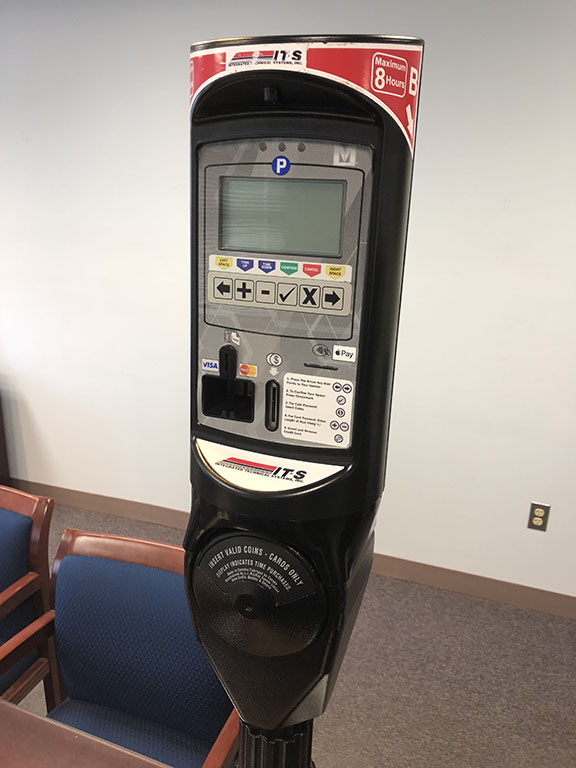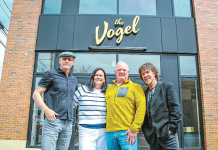By Philip Sean Curran

Photo by Philip Sean Curran
RED BANK – The days of searching for quarters or having to make change on the fly to pay for on-street parking in Red Bank are about to end when new “smart” parking meters debut in the borough next year.
The machines will accept payment by coins, credit and debit cards, a mobile app and near-field communication through mobile devices, part of a long overdue upgrade to replace about 445 meters that are half a century old, officials said.
“I mean it’s almost like first-generation meter technology,” borough administrator Ziad A. Shehady said of what is on the streets now. “The meters are all very old.”
In all, the borough is looking to acquire about 57 single-space meters and 194 dual-space meters, or meters that can handle two parking spots at once, he said. The dual-space meter will let users to indicate what space they are using, left or right, and pay accordingly.
The meters, made by Mackay Meters, also will have solar panels to charge the batteries that operate the machines. The panel sits at the top of the meter. “The batteries inside of it are fully charged all the time,” Shehady said. Among other features, the new meters will be able to communicate to officials when the machines are broken. Also, the borough can electronically put messages on the meters, such as free holiday parking.
Toward the end of November, the borough council will introduce a bond ordinance to pay for the hardware and other parking-related work. The new equipment is estimated to cost around $225,000.
The borough will install the smart meters in late winter or early spring of next year, Shehady said.
These meters have been used in other parts of the state and the country, he said, and the technology represents a “very visible change.”
“The meter is a new meter, it’s not your traditional-looking meter,” he said. “As with anything, there’s a learning curve with change.”
One borough official said he thought installing smart meters was something Red Bank needed to do to help residents and downtown businesses.
“I think it’s long overdue for our parking system,” said Erik Yngstrom, council president and also chairman of the governing body’s parking committee. “It’s very antiquated just to have coin-operated machines. It’s hard on our employees to collect. And it’s hard on our customers that are coming into Red Bank for these businesses to put coins into the meters for street parking.”
A parking study, done for the borough and RiverCenter, the nonprofit that runs the downtown Special Improvement District, called for having new meters in town. The 81-page report, released in January, suggested that step among others, including hiring a full-time parking czar responsible for making all parking decisions in the borough.
According to RiverCenter executive director James Scavone, the smart meters will be more convenient for customers and give the borough “a lot of information so that we can better manage the parking.”
“So I do think that our customers and people who visit Red Bank will appreciate the new meters,” he said.
Shehady echoed the sentiment about the meters providing more information.
“Because it’s a smart meter, it’s going to give us data to make better informed decisions from a parking utility perspective, both in terms of rates, in terms of hours, in terms of turnover, in terms of inventory, demand, all of this,” he said. “Anything that affects the parking utility’s operations is going to be better informed by a meter like this.”
As for parking rates, Yngstrom said they will stay the same for the “foreseeable future.” The current cost for street meters is $1.50 per hour.














